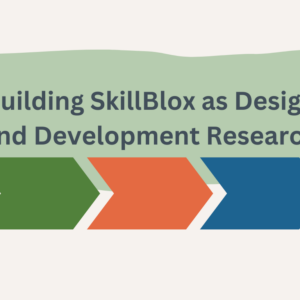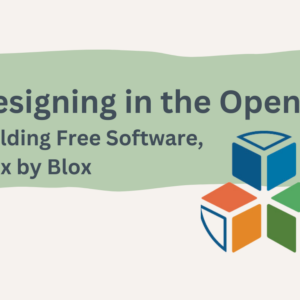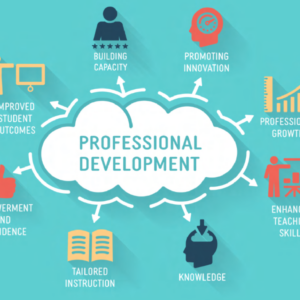 By the 21CLEO Research Team
By the 21CLEO Research Team
Preface
Part of our research process has been to engage the voices of individuals involved in employer-supported education and training initiatives or otherwise impacted by the issues we have been investigating. To this end, we hosted a series of convenings to discuss our findings, and invited a group of 12 interested parties who represented a range of backgrounds and experience in the workforce development system to respond to our initial observations, to make sure that we are doing things that were relevant and useful, and to identify things that we had missed or that we didn’t get right.
Participants in the convenings, who we consider our research partners, included working learners, individuals who work directly with front line workers, adult education practitioners, others who work in the workforce development system, and individuals who work for organizations known to engage in research and advocacy. The practitioners and professionals among this group shared a number of characteristics that made their insight especially valuable. Many were working on innovative projects focused on adult learning and workforce development. Their interest and experience working to improve access to relevant education and training meant that they knew about different innovative initiatives or approaches. They were thus uniquely qualified to respond to our research findings in a series of three convenings, each with a different focus. We described the process that we used to involve working learners in the research process in a blog post called Many Voices: Participants as Research Partners. In this blog post we describe our research partners’ comments about the persona who are missing from our list.
A persona is a composite illustration representing an archetype of a particular person or persons. The 21 CLEO personas illustrate characteristics of the front-line working learners interviewed in our research on employer-supported education and training initiatives. We developed six personas based on the patterns that emerged from data analysis.
- Neberu: Working To Feel Comfortable Interacting With English Speakers
- Alimayu: College-educated Retail Worker Learning English
- Elise: Juggling Work, Required Training, And Long-term Goals
- Regina: Healthcare Worker Seeking To Establish A Career
- Dani: Front-line Supervisor Paid Hourly Seeking Certification For Advancement
- Naomi: Learning for Future Possibilities
We knew the personas had helped us structure our research findings about who working learners are, but we needed to see if they were relevant to others. We held three convenings with our research partners, and through follow-up discussions, received valuable feedback about our personas. Though they noted that the persona descriptions helped them to visualize specific learners and that they recognized qualities that mirrored those of the working learners they had supported in the past, they also saw that there were learners they supported in their work who were not represented in the persona.
Missing Persona
Some working learners who shared common characteristics (such as opportunity youth or those with learning differences) were not reflected in our set of persona. By identifying ‘who is missing’, our research partners pointed out how our sample of learners falls short of comprehensively reflecting the range of front-line service workers engaged in employer-supported education and training initiatives.
A practitioner whose professional experience included literacy work in Community Based Organizations suggested an additional persona that could represent the unnecessary burden immigrant workers face with regard to attaining English language proficiency to advance on the job. An example shared was of an experienced Spanish-speaking welder asked to pass a welding proficiency test available only in English, even though welding is skilled work that could be done regardless of English proficiency.
Another research partner suggested that a persona focus on an adjudicated youth who are trying to connect with training initiatives to gain better employment. The research partner noted that knowing about the perseverance and experiences of these youth would be instructive for the workforce development system. Such a persona could represent a considerable number of people who are working to become employed and for whom entry into the workforce represents resilience and self-efficacy.
The suggestions for new persona are meant to be expansive, but without having interviewed several individuals with these characteristics, we are not able to introduce these persona in our data. We agree that these additions are valuable.
Limitations of Persona
Our conversations with interested parties helped us see how our personas are useful representations of our own data set, but suggested that wide-scale use of the persona has limitations because they are not reliably generalizable to a wider pool of working learners beyond our participant pool. We agree that more data is needed to provide a fuller perspective that includes these characteristics. However, there exists a tension between keeping persona concise and sufficiently expansive that it accurately reflects the subjects it represents. In the end, our research partners shared that the personas can be a good place to start when designing employer-supported education and training initiatives. We discuss this in more detail in an upcoming blog called Limitations of Our Working Learner Persona: Insights from Research Partners.
Conclusion
The responses from our research partners have enriched our understanding of what it means to participate in education and training initiatives in the 21st century. Each context for learning is different, and each learner has different experiences and purposes for engaging in learning. But across our data, we’ve seen a commitment and enthusiasm for continued learning among the working learners we were privileged to interview as well as those interested parties who shared their wisdom and experiences with us. We are grateful for the time and insights of everyone we’ve talked to.
Special thanks to our research partners:
Maria Luisa Castaneda, 1199 SEIU Home Care Industry Education Fund
Orlando Cazerez, Center for the Future of Arizona
Ashlei Jones, Independent learner-advisor
Conzolo Migliozzi, 1199 SEIU United Healthcare Workers East
Huda Muhammed, Lutheran Immigration and Refugee Service
Cherie Phipps, The Western States Chain Grocers Association
Federico Salas-Isnardi, Mayor’s Office for Adult Literacy (MOAL) in Houston
Muhammad Shafique, Independent learner-advisor
Iftu Usha, Independent learner-advisor



